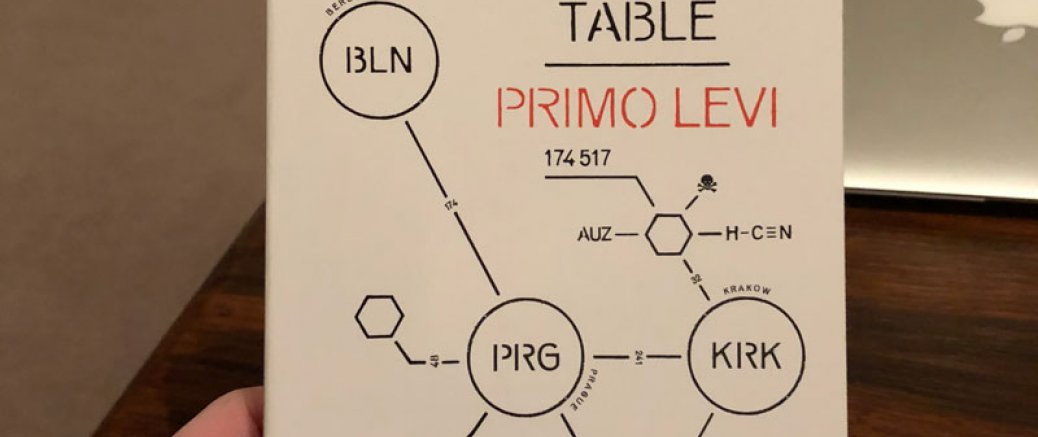The third book of January was Primo Levi’s semi-autobiographical “The Periodic Table”, which documents his eventful life as a chemist, resistance fighter and Auschwitz prisoner. It’s a book about chance, imperfections of human actions and the science of chemistry.
The book was written in 1975, a few years before Primo Levi died, and couple’s the authors life with elements from the periodic table and different broad philosophical themes. The result is twenty-one short stories starting with argon, “a noble gas”, and ending with carbon, “the element of life”. The book was recommended on Five Books as one of the top 5 science books to read and it didn’t disappoint: Levi’s style is laid back, funny, but always idealistic. The punch lines are delivered gently, by a person that, after having survived hell, seems happy so long he can keep doing the chemistry that he loves. Even if that involves being poor, having to extract precious chemicals from chicken shit or turning a friend’s living-room into a giant fume hood.
Two themes of the book made a big impression on me. The first is about impurity. In Levi’s struggle growing up as a Jew in fascist Italy, his brief fight in the resistance, his capture and finally his time during the Holocaust as a prisoner in Auschwitz, he is constantly treated like the dodgy one, the Jew, the impure. Fascism does not want the diverse, the different, and many chapters documents how Levi’s life is affected by a society increasingly engulfed in this ideology, starting with staring and odd behaviour when he’s a student, and culminating with the factory-type extinction of his fellow Jews. However, in each chapter Levi documents how it’s always his outside-thinking that saves him. The chance discovery of Cerium in an Auschwitz laboratory – and the tedious, dangerous work of sculpting it into primitive lighters under bed-sheets at night to be traded for food – enables Levi to survive for a few extra months in the camp. The lesson seems life-long: for the author “minute precautions, maniacal cleanliness, purity with eight zeroes” makes him suffer. In the chapter on zinc, Levi describes how this element can be catalysed with sulfuric acid, but if the zinc is very pure quality it somehow resists the acid. Levi writes:
“One could draw two conflicting philosophical conclusions: the praise of purity, which protects from evil like a coat of mail; the praise of impurity, which gives raise to changes.”
Not surprisingly, Levi rejects the first conclusion: for the wheel to keep turning, life to be lived, impurities are needed. It’s a powerful message, one that resonated strongly with me.
The second theme is more broadly about how to be a scientist. It’s warming and fun to read about Levi’s first foray into chemistry (which of course ends with an explosion). His eagerness is inspiring and I’ll just leave this long quote from the chapter on nickel:
“We are chemist, that is, we are hunters: ours are the two experiences of adult life of which Pavese spoke, success and failure, to kill the white whale or wreck the ship; one should not surrender to incomprehensible matter, one must not just sit down. We are here for this – to make mistakes and to correct ourselves, to stand the blows and hand them out. We must never feel disarmed: nature is immense and complex, but it is not impermeable to the intelligence; we must circle around it, pierce and probe it, look for the opening or make it.”
The book is a good read, perhaps because it’s ‘impure’ – I am not sure how auto-biographical it all is. Levi’s thought are probably the ones of a man that has had time to reflect upon his life, stretching his chapters a bit so they fit his morals, but that makes the stories all the more interesting to read.
